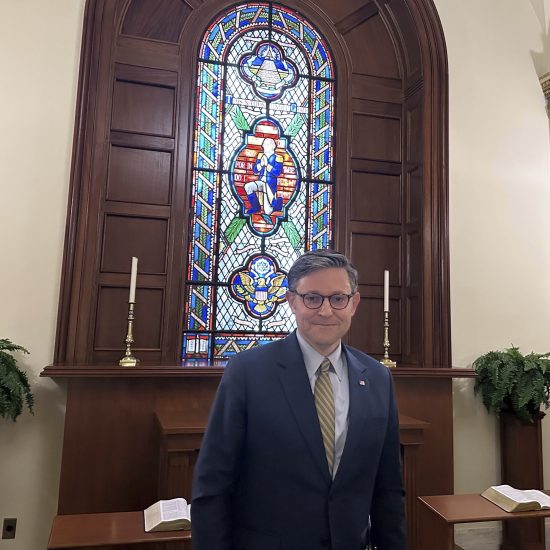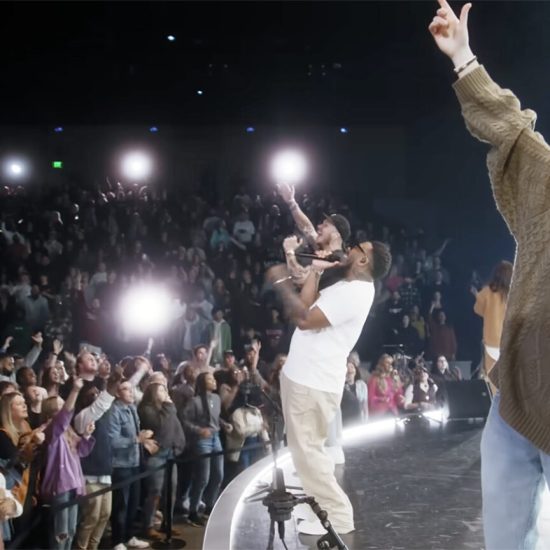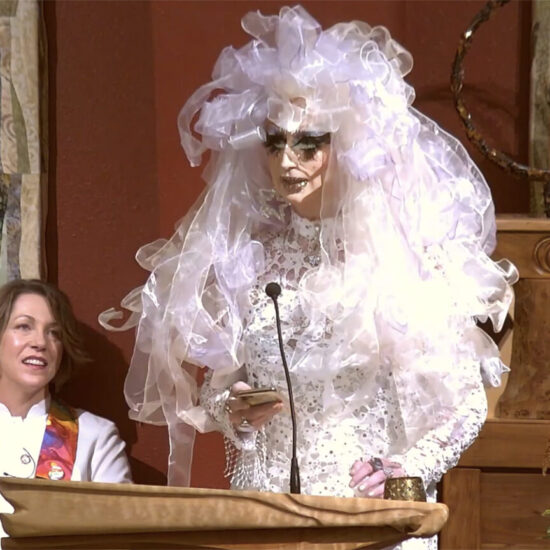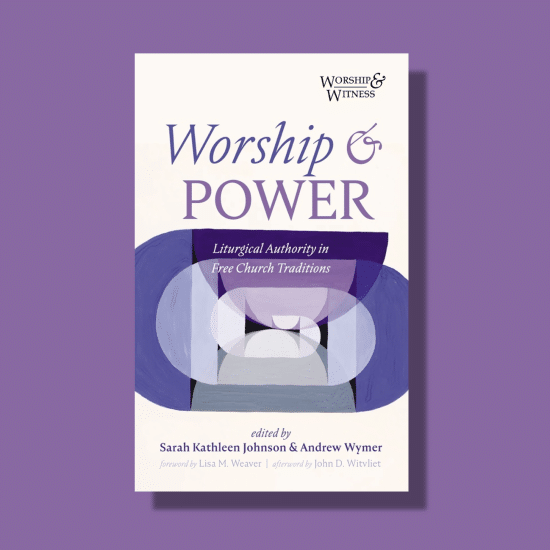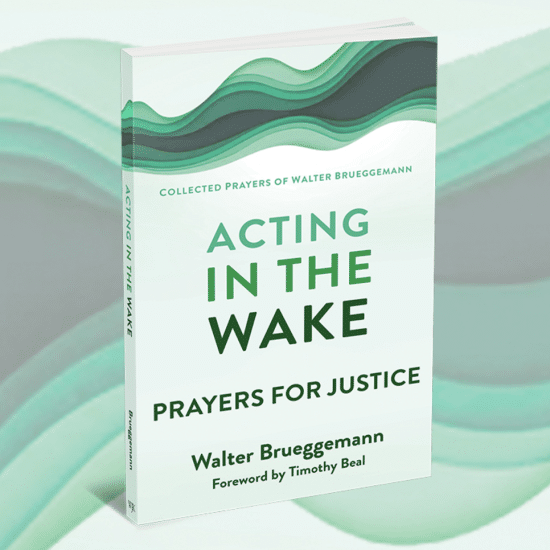On Sunday (June 2), controversy erupted after President Donald Trump showed up unannounced at a Southern Baptist megachurch in the middle of the service with little notice. Still in his golf clothes — as he had spent the morning on the greens rather than in a pew — he was ushered onto stage, prayed over with a special blessing, and then left the church. Criticism quickly grew as many saw this as an attempt to sanctify Trump’s political agenda or immoral character.

Brian Kaylor
While some rushed to the defense of the church’s pastor, David Platt, and praised his nonpartisan prayer, much of the support seems to miss a critical issue. The problem was not praying for the president. The problem was bringing the president on stage for his political photo op. Yet, as often occurs when preachers give their pulpits over to a politician, they point to a Bible passage that does not actually justify their decision: 1 Timothy 2:1-2.
With Trump on stage, Platt announced they were going “to do what 1 Timothy chapter 2 says to do.” Platt also referenced the passage as he prayed with one hand on Trump’s back and the other still holding his Bible open to that passage.
The passage in 1 Timothy remains the go-to verses to justify bringing a politician up front during worship. While Platt did not give Trump the microphone, ministers often even cite the passage to justify inviting a politician to speak during worship.
Last year, the annual meeting of the Southern Baptist Convention welcomed to the stage Vice President Mike Pence (who, like Trump, is not Baptist). Grant Ethridge, an SBC leader explained the decision: “While the Southern Baptist Convention aligns itself with no political party, our program recognizes and honors local, state, and national leaders in keeping with 1 Timothy 2:1-2.”
Southern Baptists did more than just pray for Pence; they gave him their pulpit and microphone to turn their religious gathering into a political pep rally full of partisan talking points. The prayer for Pence actually took very little of the time he spent on stage.
A few months before that, the Missouri Baptist Convention cheered onto stage a candidate with even less religious connection to them than Trump or Pence. MBC leaders prayed over then-Missouri Governor Eric Greitens, the state’s first Jewish governor. Once again, they turned to that passage by the apostle Paul. Don Hinkle, the MBC’s public policy advisor, declared before the event: “We are delighted the governor has accepted our invitation to speak to Missouri Southern Baptists and we look forward to putting into practice the Apostle Paul’s instruction to Timothy in 1 Tim. 2:2, that we pray for those in authority over us.”
The governor, who would resign just a few months later amid multiple scandals involving alleged sexual assault and campaign finance violations, gave a rousing political speech peppered with attacks on various political opponents and the outlining of partisan goals. Once again, politicking trumped praying.
Other examples could be cited as pastors pointed to 1 Timothy 2 to justify inviting various politicians into the pulpit. And with the 2020 presidential campaign in full swing and several Democratic candidates already making campaign stops in churches, we’ll likely see this passage invoked even more. But the passage does not actually say what they say it says! Paul told his fellow believers to pray for “kings and all those in authority.” He wrote nothing about bringing such rulers onto stage and definitely did not suggest letting such rulers take over the pulpit.
To Platt’s credit, he did not give Trump the microphone, but nothing in the passage says he had to bring the president up front. In fact, other biblical passages would point against such an action — like Jesus warning about praying in public places just to be seen (Matthew 6:5-8) or James warning against showing favoritism to the rich by giving them special attention in church (James 2:1-11).
Those who go beyond Platt and turn over the microphone, venture into even more problematic territory. Praying for someone does not equal giving them a platform to speak. We can pray for those in authority without turning our church services over to them. In fact, Jesus urged us to give to Caesar what is Caesar’s and give to God what is God’s. We can pray for Caesar without letting Caesar speak in God’s house. I have a hard time imagining Paul — or other early church leaders — saying ‘yes’ to a request from Nero, Pilate, or Herod to speak during worship.

Photo by Amaury Gutierrez on Unsplash
The (mis)use of 1 Timothy to justify bringing a politician up front and even letting them speak raises even more problems when practiced with a partisan bias. While the SBC welcomed President George W. Bush, a Republican, to speak via satellite at the SBC annual convention multiple years — with 1 Timothy 2 cited by SBC leaders — they did not have President Barack Obama, a Democrat, speak. Similarly, although the MBC welcomed Greitens, a Republican, in his first year as governor, they did not have his predecessor — Democrat Jay Nixon, who is a Christian — at all during the previous eight years.
But if, as comments by those Baptist leaders suggested, bringing a politician on stage to speak is proof of following 1 Timothy 2, then does that mean they did not pray for Obama or Nixon? Or is it possible to biblically pray for someone without giving them the platform?
We should not be so politically naïve about why a politician would seek to appear on stage during worship — either to speak or to receive a special blessing. Trump attended no part of the worship service except the part with him on stage. He did not go to worship God; he went to be seen. So, he went to a large megachurch with a video rolling, not a small rural church with few people like the one I preached at Sunday. He came for the photos and video that quickly spread among his supporters as proof of his “godly” nature. Recognizing that, pastors must protect their integrity and the witness of their church and just say ‘no.’
Despite good intentions, Platt was used. He could have simply prayed with Trump off stage — as he did — and even invited Trump to find a seat and stay for worship. But ushering the president on stage was not necessary to follow 1 Timothy 2. It was, however, necessary for Trump’s political purposes.
Brian Kaylor is editor and president of Word&Way.

